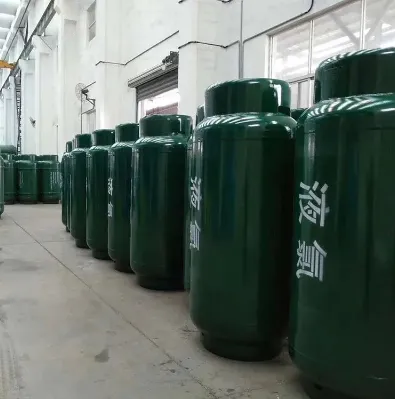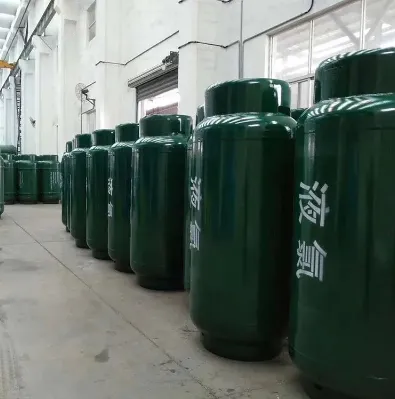


How to Stay Updated on Chlorine Developments

Bulk liquid chlorine is an essential chemical used in water treatment, disinfection, and industrial applications. With growing concerns over water safety and sanitation, staying informed about chlorine types and industry developments is crucial. Whether you work in water treatment, swimming pool maintenance, or industrial processing, understanding the latest trends in chlorine bulk supply and regulatory updates ensures efficiency and compliance. Keeping up with the latest advancements in types of chlorine can help businesses and municipalities make informed purchasing and application decisions.
Understanding the Different Types of Chlorine Used in Various Industries
Chlorine is available in different forms, each suited for specific applications. The most common chlorine types include bulk liquid chlorine, chlorine gas, calcium hypochlorite, and sodium hypochlorite. Bulk liquid chlorine is widely used in water treatment plants to disinfect drinking water and wastewater due to its effectiveness in killing bacteria and viruses. Chlorine gas, though highly effective, requires careful handling due to its hazardous nature.
Calcium hypochlorite is often used in swimming pools and sanitation due to its high chlorine content and stability. Sodium hypochlorite, commonly known as bleach, is another widely used disinfectant in household and industrial cleaning. Keeping track of these types of chlorine and their respective uses helps industries choose the most suitable option for their specific needs.
Why Bulk Liquid Chlorine Remains a Top Choice for Disinfection
Among the various chlorine types, bulk liquid chlorine continues to be the preferred choice for large-scale water treatment and industrial disinfection. Its high chlorine concentration makes it highly effective in killing harmful microorganisms, ensuring safe water for public consumption. Municipal water treatment plants rely on bulk liquid chlorine because it provides a cost-effective and efficient way to maintain clean and safe water supplies.
In industrial applications, chlorine bulk is used in chemical production, paper manufacturing, and textile processing. The demand for bulk liquid chlorine remains steady due to its ability to sanitize and remove contaminants from raw materials and finished products. Businesses that require consistent disinfection solutions must stay informed about supply chain developments and quality standards to ensure a steady and reliable source of chlorine bulk.
Keeping Up with Market Trends and Innovations in Chlorine Bulk Supply
The chlorine industry is constantly evolving, with new advancements in production, safety measures, and environmental impact reduction. Companies dealing with chlorine bulk must monitor market trends, including fluctuations in demand, pricing, and regulatory changes. Increased environmental concerns have led to stricter regulations on chlorine production and usage, requiring businesses to adapt and adopt sustainable practices.
Technological advancements in chlorine storage and transportation have improved safety and efficiency. Many suppliers are now offering improved containment systems for bulk liquid chlorine to minimize risks associated with leaks and exposure. Additionally, research into alternative disinfectants and greener chlorine production methods is shaping the future of the industry. Staying informed about these innovations helps businesses maintain compliance and adopt the latest best practices in chlorine handling.
Reliable Sources for Staying Updated on Types of Chlorine and Industry Regulations

To keep up with changes in chlorine types and regulations, businesses should rely on trusted sources such as industry publications, government agencies, and professional associations. Regulatory bodies such as the Environmental Protection Agency (EPA) and the World Health Organization (WHO) frequently update guidelines on chlorine usage in water treatment and sanitation.
Networking with industry professionals and attending trade expos focused on bulk liquid chlorine and water treatment innovations can provide firsthand insights into the latest developments. Online forums, scientific journals, and supplier websites also offer valuable updates on types of chlorine and best practices. By staying informed, businesses can make strategic decisions regarding chlorine bulk purchasing and application.
For those looking to secure high-quality bulk liquid chlorine, we offer reliable and industry-compliant chlorine solutions. Stay ahead of market trends and regulatory changes by sourcing your chlorine bulk from a trusted supplier.
Bulk Liquid Chlorine and Chlorine Types FAQs
What is the best type of chlorine for water treatment?
Bulk liquid chlorine is the most commonly used chlorine for municipal water treatment due to its high effectiveness in disinfecting drinking water and wastewater.
How is bulk liquid chlorine different from chlorine gas?
Bulk liquid chlorine is a concentrated liquid form, while chlorine gas is a highly volatile substance that requires specialized handling. Liquid chlorine is generally easier to store and transport.
Is chlorine bulk safe for industrial use?
Yes, chlorine bulk is widely used in industrial applications, including sanitation, chemical production, and textile processing. However, proper handling and safety measures must be followed.
How can I stay updated on chlorine regulations?
You can stay informed by following government agencies such as the EPA and WHO, reading industry reports, and networking with chlorine suppliers and professionals.
Where can I buy bulk liquid chlorine?
You can find high-quality bulk liquid chlorine for sale on our website, ensuring safe and effective chlorine solutions for your water treatment and industrial needs.
-
Uncover the Benefits of Sodium ChlorateNewsJun.24,2025
-
Sodium for Sale: Your Essential ResourceNewsJun.24,2025
-
Raw Materials in Chemical IndustryNewsJun.24,2025
-
Potassium Hydroxide: Versatile Solutions for Your NeedsNewsJun.24,2025
-
Organic Pesticides and Chemical Raw Materials: Building a Sustainable FutureNewsJun.24,2025
-
Discover Premium Chlorine Tablets TodayNewsJun.24,2025
-
Zinc for Sale: Your Essential ResourceNewsJun.04,2025


















